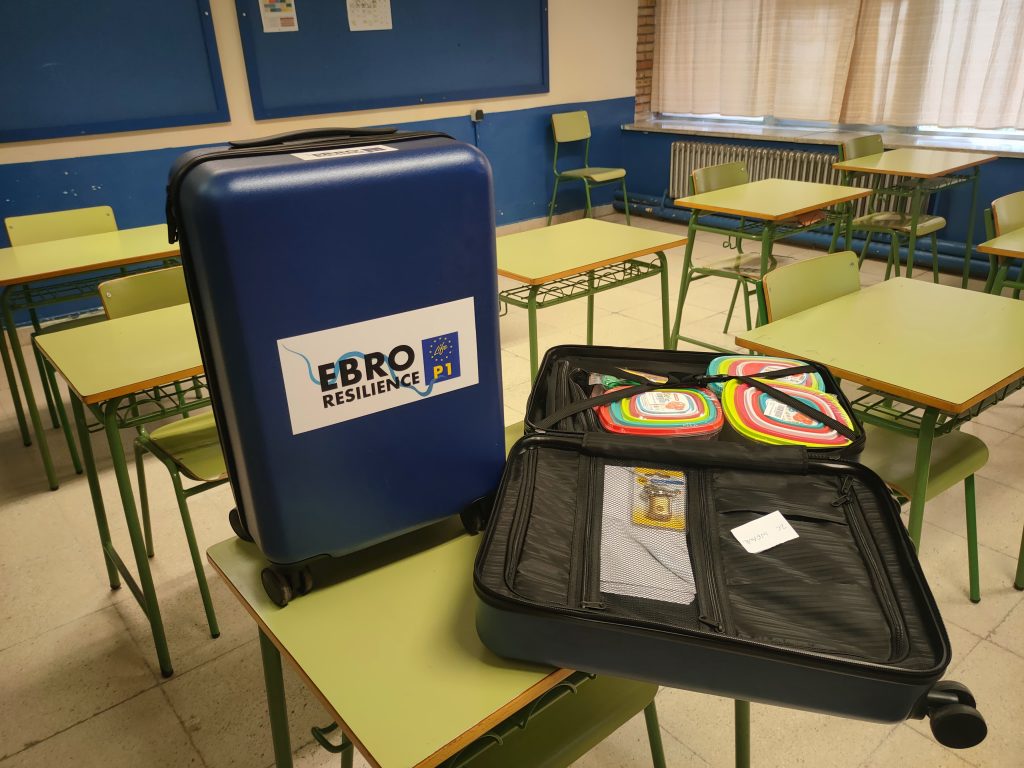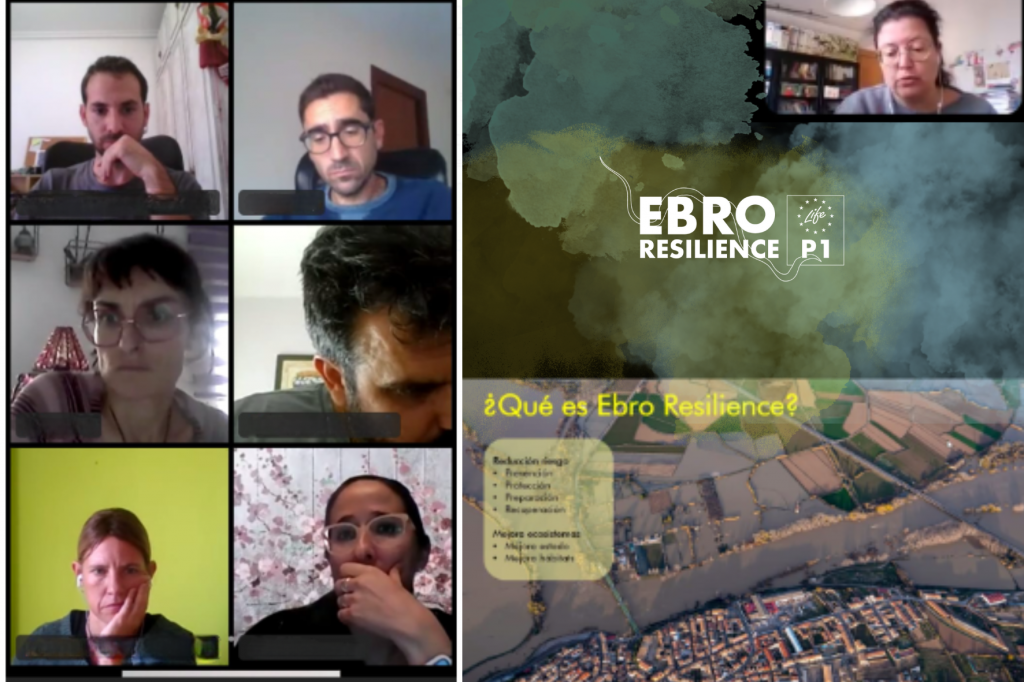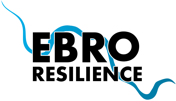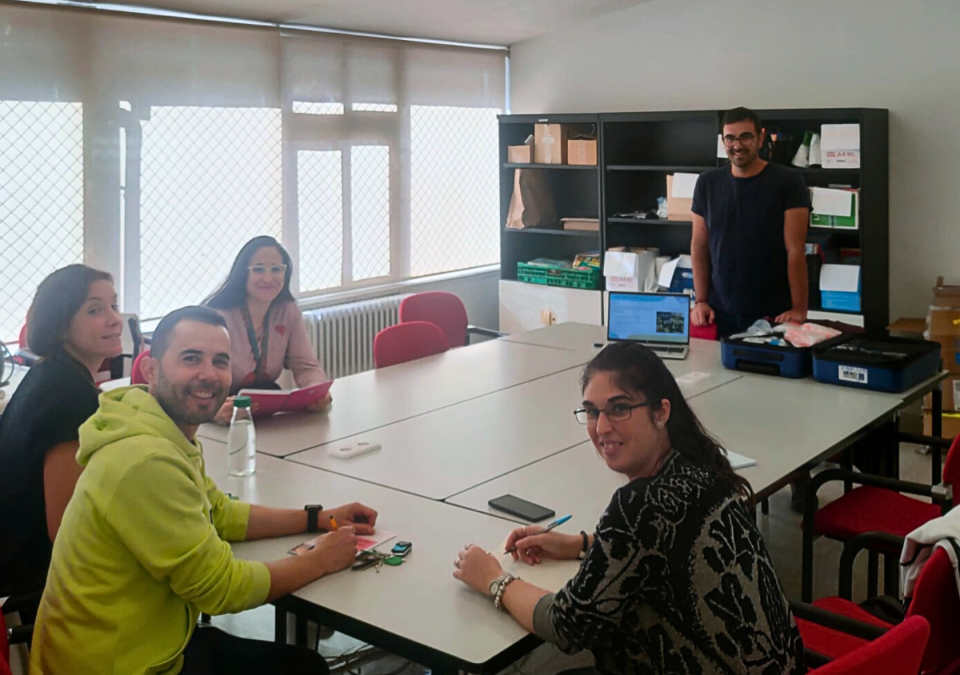LIFE Ebro Resilience P1 devotes the last quarter of the year to actions aimed at the educational sector in the Project’s action sections. In October, the training sessions for teachers on floods and Ebro Resilience actions are being held and the distribution of the educational kits for the teaching teams has also started in the educational centers.
The training combines online sessions on the phenomenon of flooding and face-to-face sessions, with special emphasis on interpretive descents to learn about the river from the inside.
During this year 2024, meetings and encounters have already been held in primary and secondary schools to present the contents of the didactic units and materials.
The didactic units, which can be consulted in the Documents section of the website www.ebroresilience.com, identify basic contents related to flood risk management. The suitcases contain all the materials necessary to carry out the proposed educational activities.
These materials have already arrived in Zone 1 to IES Gonzalo de Berceo in Alfaro, (La Rioja) and to CEP Dos de Mayo in Castejón (Navarra) and in Zone 2 to IES Benjamín Jarnés in Fuentes de Ebro (Zaragoza). Soon it will also reach IESO Castejón, CEIP Obispo Ezequiel Moreno in Alfaro, CEIP Luis García Sainz in Fuentes de Ebro and CRA La Sabina in Osera de Ebro (Zaragoza).


Specifically, there are six types of suitcases adapted to the needs of each level and which have been defined and reviewed with the interested persons (riparian population, teaching sector, environmental educators) that make up the stable participation groups dedicated to communication and participation, the so-called co-creation groups 3.
- Children: photos of river landscapes, the story “Orbe”, edited specifically for the project, plastic containers, chalk, pencil case, flora and fauna guides…
- 1st and 2nd Primary: in addition to the above, orthophotos, transparent boards, markers…
- 3rd and 4th grades of Primary School: landscape photos, animal templates, word search puzzles, pictures, orthophotos, tape measures, cardboards…
- Primary 5th and 6th grade: kahoot templates, flood news, roles for characters, field notebooks, pencil case, disposable gloves, plastic jars, bags, labels, magnifying glasses…
- 1st and 2nd ESO: laboratory report, a report template, letter from the water management administration (Confederación Hidrográfica del Ebro), control sheet, sample bottles, test tubes, dyes, beakers, water sampling kit, compasses, topographic maps, orientation beacons…
- 3rd and 4th of ESO: role and personal papers, report template, debate script, recording camera, cardboard, case…
You can consult here all these materials, and ask any question about them through the mail lifeebroresiliecep1-participacion@tragsa.es.
Why do we work on these actions?
The education sector is one of those identified by the LIFE Ebro Resilience P1 Project as the target of a specific program of proposals in its Capacity Building Plan whose objectives are to improve the knowledge of the riparian population on everything related to the flood phenomenon; to promote resilience and self-protection measures to reduce the negative effects of floods and also to create citizen networks and spaces for analysis and participation.
Within the social capacity building plan, 16 campaigns are planned to improve social awareness on different aspects related to flood risk management, with different target audiences, grouped into 7 groups: in addition to the education sector, technicians and managers, communication sector, primary sector, environmental sector, intersectoral and general public.

